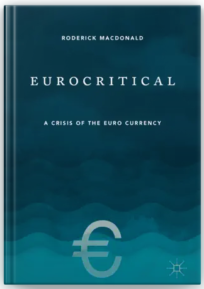German automotive industry at a crossroads
Kategoria: Business
Here’s a Spiegel article I wanted to flag briefly because it solidifies something I have been saying for a while about the euro area. This is the quote that was most notable:
In response to a request by SPIEGEL, the German government has, for the first time, released hundreds of pages of documents from 1994 to 1998 on the introduction of the euro and the inclusion of Italy in the euro zone. They include reports from the German embassy in Rome, internal government memos and letters, and hand-written minutes of the chancellor’s meetings.
The documents prove what was only assumed until now: Italy should never have been accepted into the common currency zone. The decision to invite Rome to join was based almost exclusively on political considerations at the expense of economic criteria. It also created a precedent for a much bigger mistake two years later, namely Greece’s acceptance into the euro zone.
Instead of waiting until the economic requirements for a common currency were met, Kohl wanted to demonstrate that Germany, even after its reunification, remained profoundly European in its orientation. He even referred to the new currency as a „bit of a peace guarantee.”
What the article doesn’t say is that Kohl probably had no choice because of Belgium. Here’s how I explained it two years ago:
Eventually ERM became the Euro with the Euro’s treaty terms being set in Maastricht in 1992. The problem, at the time, was Belgium. See, the Germans wanted the Belgians in on the currency union. A core of the Benelux states of Belgium, the Netherlands, and Luxembourg along with France and Germany would have suited the Germans just fine.
But, the Belgians had a huge amount of debt – over 100% of GDP. That was a problem, particularly because it allowed the unstable Italians an entree into Euroland. The Germans looked at the Italian Lira as a soft currency and wanted no part of a currency union with the Italians. The Italians seemed to have a different governing coalition almost every year. They were completely incapable of reining in spending and had a weak currency as a result. However, Italy was a founding member of the EU. So, once you let the Belgians in, with their huge debt to GDP burdens, you had to let the Italians in too.
And, once you let the Italians in, well, you had to let in the Spaniards, Portuguese, Greeks and pretty much everyone else.
Bottom line: The euro was a political construct right from the start. The way it began was made for crisis. The euro was designed to fail because monetary union was not enhanced by enough fiscal and political union. Some of the euro’s designers like Italian Tommaso Padoa-Schioppa, often considered a founding father of the euro, knew this. They allowed the single currency to come to form in its present incomplete form for political reasons, as the Kohl documents attest. They believed that the euro zone would develop the necessary institutions to prevent an existential crisis, but they were wrong.
Just as with the botched German currency union that left eastern German labor uncompetitive for over a decade, the politics of post-war Europe always dictated the outcome for Helmut Kohl and his administration. With the euro, it is no different.
Source: New Documents Shine Light on Euro Birth Defects – Spiegel


